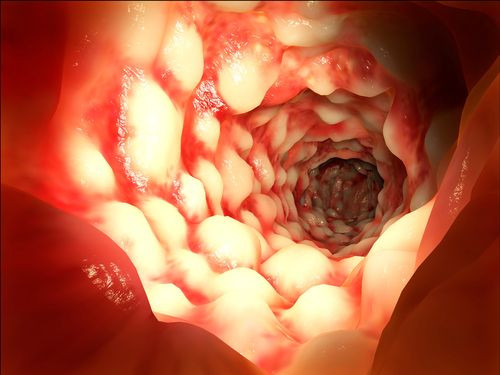Crohn's Disease Remission Lengthened In Kids, Teens With Anti-Inflammatory Drug Thalidomide

A group of Italian researchers have managed to extend and improve clinical remission among children and adolescents suffering from Crohn’s disease, thanks to the once-daily anti-inflammatory drug, thalidomide.
Inflammatory bowel disease, which also includes ulcerative colitis, affects approximately 1.4 million Americans, according to the Crohn’s and Colitis Foundation of America (CCFA). While children make up a small portion of the total IBD population — roughly five percent — the diseases are growing in prevalence, especially among industrialized nations, and resistance or intolerance to traditional medicine is often a challenge for younger sufferers. Some 18 percent of Crohn’s patients will require surgery within five years of diagnosis.
Dr. Marzia Lazzerini of the Institute for Maternal and Child Health, in Trieste, Italy, along with her colleagues, recruited 56 children who weren’t responding to their current treatments. They sought to test thalidomide, a drug once used to treat conditions related to leprosy, and to harness it in the current study for its ability to suppress blood vessel production, and attack Crohn’s ties to inflammation and mucosal development. As an inflammatory disease, Crohn’s interacts with a person’s immune system within the digestive tract, causing it to malfunction and produce painful cramps, vomiting, diarrhea, and sometimes ulcers within the tract itself.
Between Aug. 2008 and Sept. 2012, throughout six pediatric care centers in Italy, the researchers administered a low dose of thalidomide once-daily to half the participants, and a placebo to the others. Despite a four-week check-in bearing no fruit one way or another, by eight weeks’ time, the medicine showed dramatic changes in the subjects. Placebo subjects who showed no changes began receiving thalidomide for an additional eight weeks. All responders ultimately received the medicine for a minimum of 52 weeks.
The differences were astonishing. Members of the thalidomide group experienced clinical remission at an overall rate of 63.3 percent (up to 65.3 percent at 75 percent response), while the placebo group only reached remission 11.5 percent of the time. Of the non-responders who went on to receive the medicine, 52.4 percent ultimately reached remission at week eight. Overall, the average length of remission among the placebo group was a meager 6.3 weeks. Thalidomide recipients, meanwhile, enjoyed 181 weeks symptom-free.
While the study was not without side-effects, Lazzerini explained that the tests didn’t produce anything out of the ordinary. “Our study confirmed more or less what is already known on thalidomide toxicity,” she said, including among them: peripheral neuropathy (damage to the nerves that send information to and from the brain), Amenorrhea (missed periods), and bradycardia (abnormally low heart rate). Lazzerini added that “minor side-effects are mostly neurological, cutaneous, and gastrointestinal.”
Thalidomide falls into the category of medicines known as immune-modulators. Other categories include aminosalicylates, steroids, antibiotics, and biologic therapy. Studies have yet to compare thalidomide to other, more popular forms of treatment, Lazzerini said. And despite the success of their current study, the authors concluded that “these findings require replication to definitively determine the utility of this treatment,” according to a press release.



























